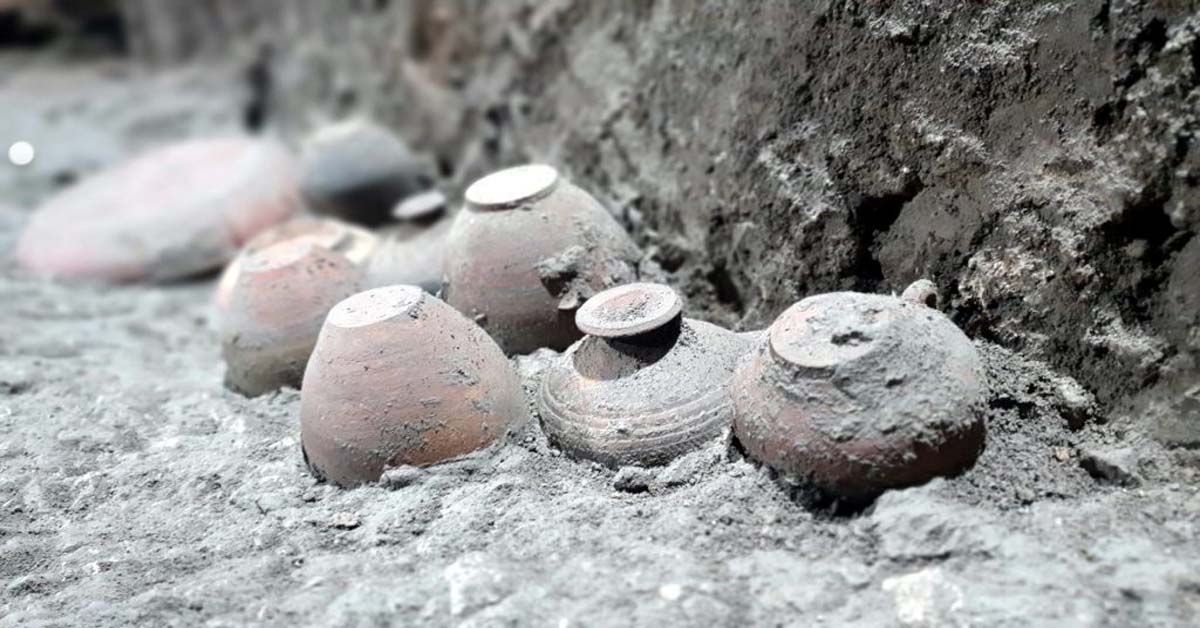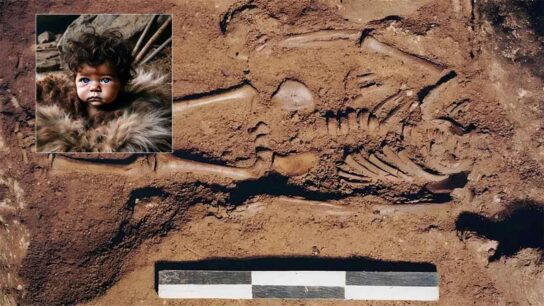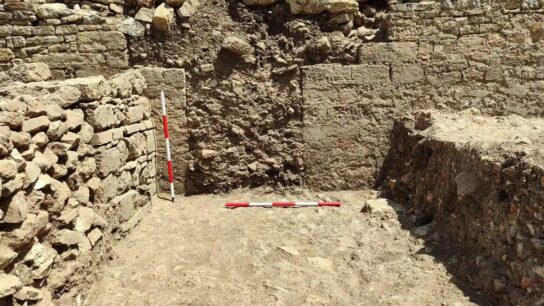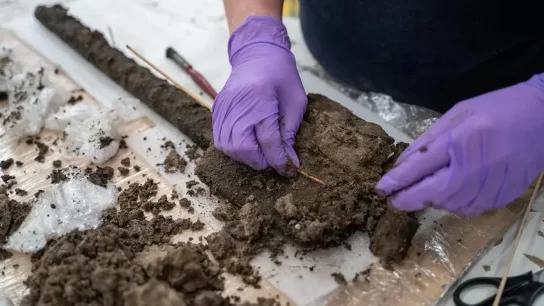New Archaeological Initiative Uncovers Ancient Cookware in Pompeii’s Suburbs
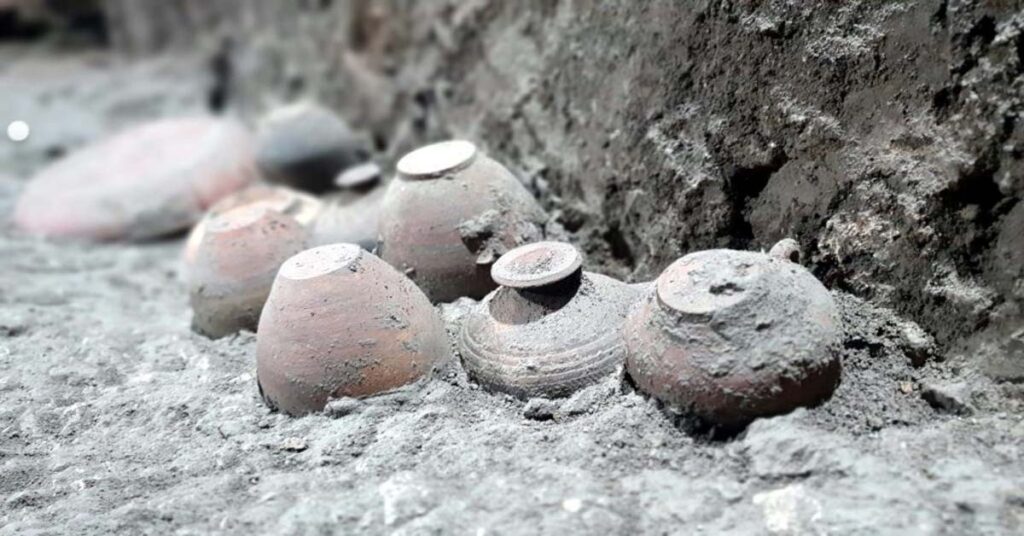
The ancient city of Pompeii has long been celebrated as one of the richest archaeological sites of all time, and now its surrounding suburbs are finally getting their due attention.
Researchers have announced new additions to the growing list of unique finds that have recently been made at a nearby villa, Civita Giuliana.
These items of pottery include fired ceramic bowls found upside down along the walls of a room that was likely part of the servants’s quarters within a vast residential complex.
It is assumed that this crockery was in situ at the time of the final phase of the eruption of Vesuvius in 79 C.E.
Two years ago, the site made headlines for the stunning discovery of a ceremonial chariot decorated with silver reliefs, a stable containing the remains of a horse still dressed in a caparison as well as evidence of what may have been a small slave family in an adjoining room.
In 2020, two bodies that are believed to be a man and a slave attempting to escape the eruption were also found.
The dig began in 2017, but attempts to unearth the secrets of Civita Giuliana have long been impeded by looters who targeted the site as its more remote position left it relatively unprotected.
To counter these illegal excavations, a memorandum of understanding was signed by the prosecutor’s office for the local city and commune of Torre Annunziata and the Archaeological Park of Pompeii in 2019 and renewed in 2021.
This unique partnership is the first of its kind in ensuring collaboration and mutual support between archaeological researchers and law enforcement.
“In a territory so rich in history and yet so abused, which still hides important traces of the past, as the discoveries of recent years have shown, it is essential that the protection of cultural heritage and legality go hand in hand,” said Massimo Osanna, former director of the Archaeological Park of Pompeii.
The agreement has supported researchers in a new scientific investigation of the site, which includes stratigraphic studies to reveal details about daily Roman life that aren’t well documented in written sources from the period.
This work has required the closure of a modern road running through the site, which had already been made structurally vulnerable by the elaborate network of underground tunnels made and used by looters.
The Civita Giuliana villa will become part of the wider Pompeii system and will eventually welcome tourists.
“These finds demonstrate the commitment and ability of the state to stem the scourge of clandestine excavations and the trade in archaeological goods,” said Italy’s minister of culture Gennaro Sangiuliano.
“Pompeii is the pride of Italy and it is our intention to further defend and promote a heritage that is unique worldwide.”

